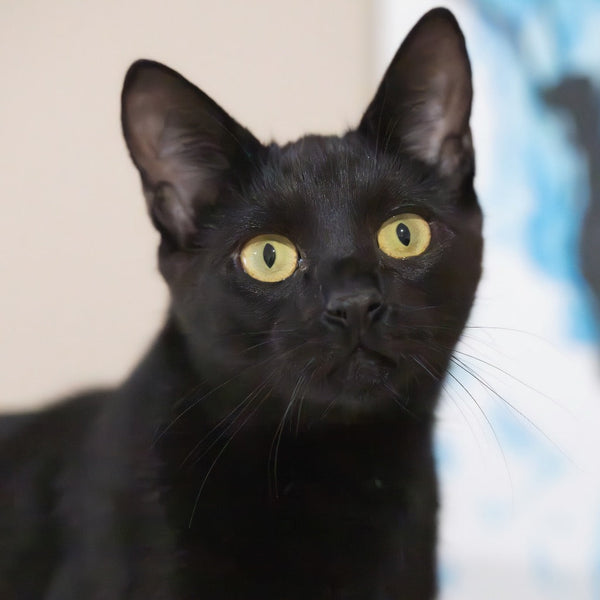Bringing the outside in with lush, green houseplants can make any home feel vibrant and alive. However, some of these beautiful plants can pose serious risks to your furry friends. In this blog post, we will explore various toxic houseplants for cats, helping you create a safe and happy living environment for both your plants and your pets.
*Please note that this blog post only touches on a few toxic plants. There are quite a few more. It is always best to research before buying a houseplant if you have pets at home.
Why Knowing About Toxic Plants Is Crucial for Cat Owners
If you're a cat owner, you know how curious cats can be. They’re natural explorers who enjoy nibbling on leaves and playing with anything that catches their eye. Unfortunately, this curiosity can lead to problems if they encounter toxic houseplants. Understanding which plants are harmful can help you prevent accidental poisonings and costly vet visits.
Common Symptoms of Plant Poisoning in Cats
Recognizing the signs of plant poisoning is essential. Common symptoms include vomiting, diarrhea, lethargy, and drooling. In severe cases, your cat may experience difficulty breathing, seizures, or even kidney failure. Knowing these symptoms can help you act quickly if your cat ingests something toxic.
Immediate Actions to Take If Your Cat Ingests a Toxic Plant
If you suspect your cat has ingested a poisonous plant, immediate action can be life-saving. First, try to identify the plant. Then, contact your veterinarian or an emergency animal hospital as soon as possible. It's also helpful to have the Pet Poison Helpline number (1-800-213-6680) handy.
Popular Houseplants That Are Dangerous for Cats
While many houseplants add aesthetic value to your home, some can be incredibly harmful to cats. Here are a few you should avoid:

Lilies
Lilies are beautiful but deadly for cats. Even small amounts can cause severe kidney failure. The entire plant, including the leaves, stem, and pollen, is toxic.

Aloe Vera
Though aloe vera is known for its healing properties for humans, it's toxic to cats. Ingesting it can cause vomiting, diarrhea, and lethargy.

Philodendron
Philodendrons are popular for their hardiness and beauty, but they're poisonous to cats. Chewing on the leaves can lead to oral irritation, swelling, and vomiting.
Lesser-Known Toxic Plants to Watch Out For
While the above plants are widely recognized, some lesser-known houseplants can also endanger your cats.

Dieffenbachia
Dieffenbachia, or "dumb cane," can cause severe oral irritation and swelling, making it difficult for your cat to swallow or breathe.

Pothos
Pothos is a common houseplant due to its low-maintenance nature. However, it's toxic to cats and can cause vomiting and difficulty breathing if ingested.

Sago Palm
The sago palm is highly toxic to cats, and all parts of the plant contain harmful substances. Ingesting even small amounts can lead to liver damage, seizures, and, in some cases, death.
Safe Alternatives to Toxic Houseplants
Don't worry; having a cat doesn't mean you have to give up on houseplants altogether. There are plenty of safe options that can coexist with your feline friends.

Spider Plant
Spider plants are non-toxic to cats and can even help purify the air. Plus, their arching leaves can be fun for your cat to play with. *Please note that spider plants can cause mild hallucinations in cats.

Boston Fern
Boston ferns are another safe option. They thrive in humid environments and are non-toxic, making them perfect for homes with cats.

Areca Palm
Areca palms add a tropical touch to your home and are completely safe for cats. They also help improve indoor air quality.
Tips for Keeping Cats Away from Houseplants
Even with safe plants, you might still want to discourage your cat from nibbling on them. Here are some effective strategies:
Use Scent Deterrents
We have some scent deterrents available which can be applied to the soil or a cloth around the pot.
We also have the Pet Safe SSSCat Spray Deterrent which uses a motion detection system to harmlessly spray your pets and keep them away from rooms, furniture, counters, and your plants.
Place Plants Out of Reach
Consider placing your plants on high shelves or in hanging baskets where your cat can't easily access them.
Provide Cat Grass
Offering cat grass can give your cat a safe and satisfying alternative to your houseplants.
Conclusion
Keep your feline friends safe with our guide on toxic houseplants for cats. Learn the crucial signs of plant poisoning, immediate actions to take, popular and lesser-known toxic plants, and safe alternatives. We also offer tips for deterring cats from plants. By ensuring your plants are cat-friendly, you can maintain a safe and harmonious home environment for both your plants and pets. For more expert pet care advice, talk with one of our staff members or your veterinarian.




